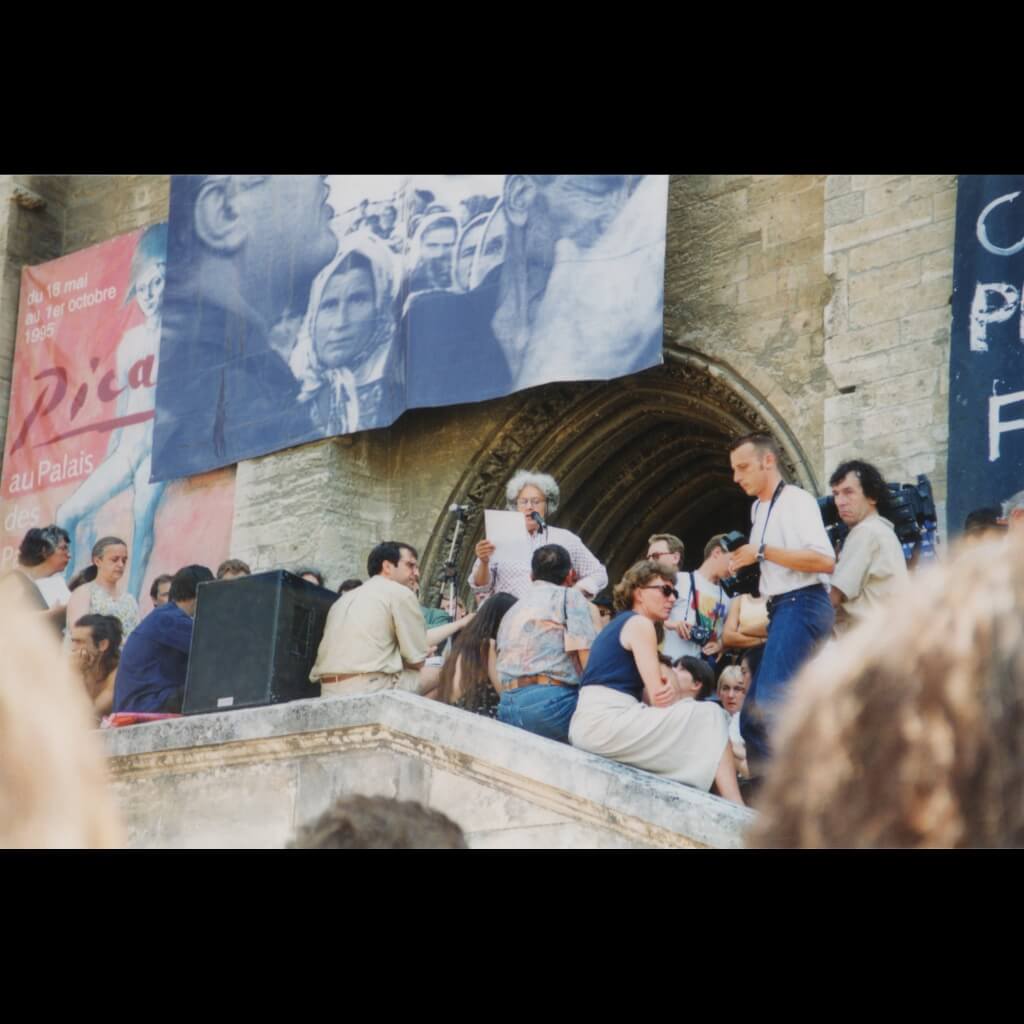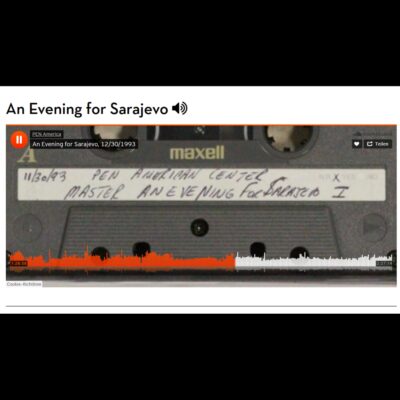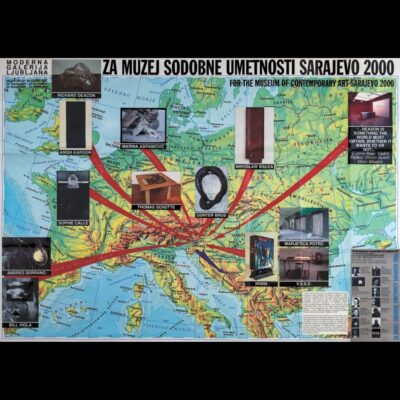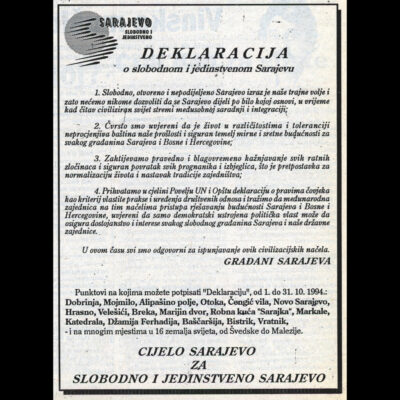| How to act |
Declarations, Demonstrations, Political interventions, Spreading information |
|---|---|
| Solidarity Map |
Avignon, France, Sarajevo, Srebrenica |
| Chronology |
1995 |
Avignon Declaration and hunger strike
The “Avignon Declaration” was published on July 20, 1995, during the Avignon Theater and Dance Festival. It was initiated by the festival in reaction to the conquest of Srebrenica by the Army of Republika Srpska, the UN’s abandonment of the safe zone, mass deportation of the population and the first news of mass atrocities against the men. The Declaration sharply criticized the international community’s political, military and moral choices during the war, and asked for “a radical and sustainable policy reversal”. Among its requests also figured the resignation of UN Secretary General Boutros Boutros Ghali and an immediate ICTY investigation of known perpetrators of “ethnic cleansing” in Srebrenica. The text also explicitly endorsed the “Declaration for a free and united Sarajevo” launched one year before by the citizens of Sarajevo.
In order to heighten the pressure on the French government and on public opinion, five renowned choreographers and stage directors started a hunger strike on August 5: Maguy Marin, Emmanuel de Véricourt, Ariane Mnouchkine, Olivier Py and François Tanguy. It took place in La Cartoucherie (near Paris), the seat of “Theatre du Soleil” directed by Ariane Mnouchkine. The hunger strike lasted for four weeks and was accompanied by many meetings and public activities seeking to draw attention to the situation in Bosnia and Herzegovina. In this time span, daily duplex radio communications between the hunger strikers and public figures in Sarajevo and other cities in Bosnia and Herzegovina were also organized. Among those involved were Adil Kulenović, Zlatko Dizdarević, Hanifa Kapidžić, Zoran Udovičić, Zdravko Grebo, Nermina Kurspahić, Kemal Muftić, Selim Bešlagić, Miro Lazović and Jakob Finci.
The hunger strike ended after NATO had started its first consequential bombing campaign against positions of the Army of Republika Srpska.





